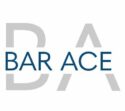Embarking on a legal career in a new country is a bold and commendable step. For international lawyers aspiring to practice in Ontario, the bar exam represents a significant hurdle, but it’s certainly not insurmountable. We understand the unique challenges you face, from adapting to a new legal system to navigating cultural nuances. This guide is designed to equip you with essential tips and resources to bridge the gap and conquer the Ontario Bar Exam.
Understanding the Terrain: Unique Challenges for International Lawyers
Beyond the inherent complexities of the bar exam itself, international lawyers encounter additional obstacles:
- Navigating a New Legal System: Canadian law, rooted in common law traditions, may differ significantly from your home country’s legal framework. Understanding these distinctions and adapting your legal reasoning is crucial.
- Cultural Adaptation: Canadian legal culture, communication styles, and professional expectations might contrast with your previous experiences. Recognizing and adapting to these cultural nuances is key to success.
- Language Proficiency: Even with strong English skills, legal terminology and nuanced phrasing can pose challenges. Mastering legal language is essential for comprehending exam questions and articulating your answers effectively.
Building a Strong Foundation: Understanding Ontario-Specific Laws and Procedures
- Focus on Core Areas: Prioritize subjects heavily tested on the Ontario Bar Exam, such as constitutional law, criminal law, contracts, torts, property law, and evidence.
- Utilize Canadian Resources: Invest in textbooks, study guides, and online courses specifically designed for the Ontario Bar Exam. These resources will provide you with the necessary context and understanding of Canadian legal principles.
- Seek Expert Guidance: Consider enrolling in a bar preparation course tailored for international lawyers. These courses often provide additional support in navigating the Canadian legal system and exam expectations.
Mastering the Language: Navigating Nuances and Exam Expectations
- Expand Your Legal Vocabulary: Familiarize yourself with Canadian legal terminology and common phrases. Use flashcards, online glossaries, and practice questions to reinforce your understanding.
- Practice Legal Writing: Develop your ability to write clear, concise, and persuasive legal arguments. Pay attention to Canadian legal writing conventions and citation styles.
- Understand Exam Expectations: Review past exam papers and sample answers to gain insights into the expected format, structure, and level of analysis.
- Example: In Canadian legal writing, it’s common to use the phrase “the court held” instead of “the court ruled” or “the court decided.” Familiarize yourself with these subtle differences to ensure your writing aligns with Canadian conventions.
Connecting and Thriving: Resources for International Lawyers
- National Committee on Accreditation (NCA): The NCA provides valuable resources and guidance for internationally trained lawyers seeking licensure in Canada.
- Ontario Bar Association (OBA): The OBA offers programs and resources specifically for internationally trained lawyers, including mentorship opportunities and networking events.
- Law Society of Ontario (LSO): The LSO provides information on licensing requirements and offers support services for internationally trained lawyers.
- Internationally Trained Lawyers Program (ITLP): The ITLP offers skills training and mentorship opportunities to help internationally trained lawyers transition into the Canadian legal market.
- Local Bar Associations and Legal Clinics: Connect with local bar associations and legal clinics to network with other lawyers and gain insights into the Ontario legal community.
Embrace Your Journey: Your Unique Perspective is an Asset
While the Ontario Bar Exam presents challenges, your international background brings a unique and valuable perspective to the legal profession. Your experiences, cultural understanding, and global outlook can enrich the Ontario legal community. Embrace your journey, leverage your strengths, and approach the exam with confidence.
Remember, you are not alone. Many international lawyers have successfully navigated this path and built thriving careers in Ontario. With dedication, perseverance, and the right resources, you can achieve your goals and make a meaningful contribution to the legal profession. We’re here to support you every step of the way.

